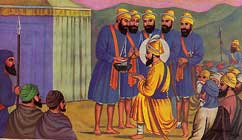some very good points:
If one tries to put them down in the form of principles, then ...
- Samaj has an ideal format for conjugal bliss - marriage. Marriage is a consensual decision by a man and a woman to come together, procreate together, and nurture their children to be wholesome individuals and successful members of society. The "economy of esteem" revolves around this institution. This institution is so important that the Rashtra itself supports this institution through various financial and other incentives.
- Each individual above a generally accepted age for maturity has a legal right to have sexual relationships even outside marriage as long as he/she takes abides by the obligations of the relationship. These obligations are set down by the other partner. Some are considered as implicit -
- only consensual sex,
- no physical hurt to the other,
- truth about one's health which can have a negative effect on the other, (some infection, STD, HIV+, AIDS,...)
- truth about one's current obligations to other partners,
- willingness for effective contraception
- willingness to accept the responsibility for any consequences (e.g. pregnancy).
- Underage, extra-marital and non-monogamous Sex would not receive any overt approval from society, even though it is legal. That means those who indulge in the above would be at the receiving end of "economy of esteem".
- Those who indulge in sexual relationship nonconforming with marriage or one which could lead to marriage, do not have the right for exhibitionism of this relationship, as that would give the impression of social sanction to it which goes against the rules of "economy of esteem". Such an impression can be hurtful to young impressionable minds. This means there can be no public partying with a sexual component from which one could gather that those indulging in sexual promiscuity are not married nor intend to marry; this means there can be no private sex parties, about which any videos or otherwise accounts seep out into the public; this means there can be no gay parades, or otherwise any public exhibition of gay relationship, etc. Public spaces belong to society. There are however no legal barriers to sex in private in whatever form one wants, as long as abides by the obligations stated above. If however there is exhibitionism going on, then society can intervene and prohibit it. However society cannot violate the privacy of others. Media is banned from eulogizing or focusing on such non-conforming relationships.
- Incestual relationships would not get the approval of society, and the more "powerful" of the partners can be punished by the state. Psychological tests can be mandated to test if there was psychological coercion. What is incest would be defined on the basis of tradition.
- Personal nudity, which is exposure of genital and mammary regions, would be decided by society and context. In places it may be allowed whereas elsewhere it may not be allowed. No hard and fast general rules to that. Other than this, the person has full liberty to choose his clothes in public spaces. However in controlled spaces, e.g. at workplace, the management can decide on the clothing etiquette. However even here nobody can deny the visitor the individual right to show his face, indeed complete head and hands unless it is demanded for reasons of hygiene, safety and quality control.. Places of religion can place further constraints. In public spaces however nobody should be able to demand some clothing etiquette or propriety from the other beyond that for covering of genital and mammary regions. Safety of the individual should be guaranteed regardless of one's clothes.
- Rules of Society become active only when society can make a convincing case that individual liberties would do harm to its most revered institutions - marriage, orderly procreation, prohibition on incest, etc.
